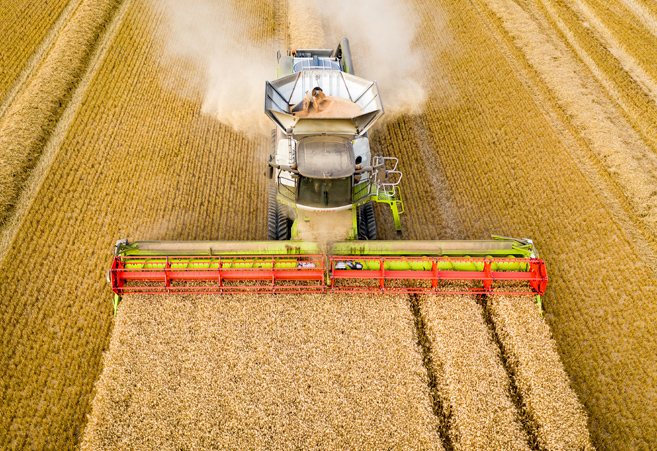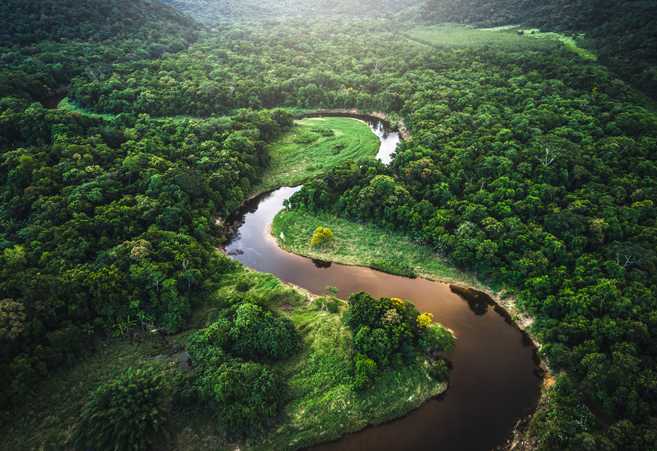“From a net zero carbon production perspective, ignoring imports, the best thing you could do quickly to get down our territorial emissions is close British Steel, close INEOS, and hope that Brexit kills off the car industry, and just import the stuff instead.”
That, however, would actually increase global emissions and make climate change worse, he points out. “The steel would probably be made less efficiently in China with much greater coal intensity.”
The same logic applies to agriculture, he explains. “If we simply import stuff from Brazil grown in areas of the Amazon that are cleared for cattle production, global warming would go up, not down, as a result. That makes me angry, angry that people have been led to believe something that simply is not true.”
As part of Net Zero’s blueprint to mitigate climate change, he proposes levelling the playing field by levying a carbon border tax on imports into the UK, based on the carbon emitted across their production cycle. This would also encourage other countries to cut their emissions, he suggests.
This is the point where farmers, worried about the threat of post-Brexit food imports produced to lower standards, could start to feel encouraged. A bit of protectionism in the name of climate change might not go amiss. But as anybody versed with the professor’s remorseless ‘polluter pays’ economic logic will know, it’s by no means a get-out-of-jail free card.

In fact, Professor Helm sees agriculture as an ideal test bed for the ideas he proposes in Net Zero, which aside from the carbon border tax include forcing down emissions by putting a price on carbon, while ramping up sequestration and offsetting.
I point out, contrary to what certain environmentalists and reports might have you believe, that agriculture is a far lower emitter of carbon in the UK, according to government statistics, than residential property or transport. But my defensive move is outflanked.
“Let’s put agriculture into perspective,” responds the professor. “First of all, the emissions that are being measured at the moment don’t properly include soils and peats. So even on the current numbers, the true contribution of agricultural emissions is underestimated, and I would say seriously underestimated.
“You might say it’s still only 10-15% of emissions, what about the other 85%? But now you have to have a sense of perspective. Whereas the electricity and the transport sectors, which each account for 20 to 25% of emissions, are big chunks of the economy, agriculture is just 0.6% of the economy.”
Economic consequences
“So the place where you would start on your emissions reduction targets, from an economic perspective, is with agriculture. It’s the cheapest place to do it because the economic consequences of any effect on agricultural output are trivial relative to the size of the economy overall.”
It’s a harsh message, but it gets even blunter as Professor Helm gets into his stride. “The next thing to say is of that 0.6% of GDP, probably half of it we, the tax payers, are paying for. So the genuine economic output of agriculture net of the subsidies is even lower.
“To put it another way, if we’re pumping all this money into this sector, we should think very carefully about what ‘value for money’ we’re getting, and, in particular, if consumers and others are having to spend lots of money paying for reductions in emissions in transport and electricity, all of which will have to be done, the question is would it be cheaper for them to do some of this via agriculture?”
But, I venture, wouldn’t a carbon tax or extra regulations that make UK agriculture even less competitive just off-shore the problem, which is what we are trying to avoid?
The professor doesn’t see it that way and believes a virtuous circle is possible. “I’m very keen on farming, and very keen on food production with a level playing field. What I’m interested in is farming that is both sustainable from an environmental perspective, and sustainable from a farming perspective.
“Where’s the conflict between putting the soils back into decent shape and food production? The conflict is between allowing the degradation of soil to carry on and thinking you’re going to be able to sustain food production going forward. This is about better farming, and better management of the land. It’s absolutely not about blanket planting of trees or ideas which I’m highly critical of like re-wilding.

“I can’t think of any sector where there is a greater scope for improvement on the carbon front which is of lower net economic cost than any other sector of the economy. So it’s the obvious, in my view, no-brainer place to start.”
Whether farmers will be convinced remains to be seen, but there will certainly be a carrot as well as a stick if Professor Helm gets his way. For starters, he believes a new market for carbon sequestration, beyond just planting trees, carbon offsetting – “you can never cut emissions completely to zero” – and the other public goods that landowners will be able to tap into is just around the corner.
Ultimately, however, it is the behaviour of consumers that will determine if the UK can really cut its carbon emissions, Professor Helm, says. “What I’ve tried to do in Net Zero is to say if you seriously, unilaterally want to stop causing climate change, this is what you actually have to do and we should stop kidding ourselves that it’s all going to be free or cheap.”
Covid-19 has forcibly helped everybody to improve their carbon diaries – according to the International Energy Agency CO2 emissions are set to fall 8% this year – so I’m feeling less guilty about my flight. But the questions Dieter Helm asks in Net Zero won’t go away and will continue to make a lot more people feel rather uncomfortable.